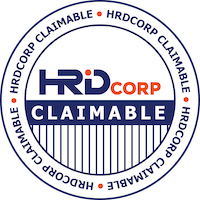Product Requirements Engineering for Software Projects
Master the art of product requirements engineering under the guidance of industry experts. Enroll in our comprehensive training program designed specifically for software professionals seeking to excel in requirements analysis, stakeholder management, and project specification. Transform your approach to software development through proven methodologies and hands-on practice.
- Available in:
- Malaysia

Corporate Pricing
Pax:
Training Provider Pricing
Pax:
Features
Subsidies

What you'll learn
- Manage requirement changes and maintain configuration control effectively
- Adapt requirements engineering practices for agile development environments
- Identify and analyze stakeholders to effectively manage project requirements
- Create clear requirement specifications using industry-standard templates
- Validate and verify requirements through systematic review processes
- Establish traceability matrices linking requirements to design and testing
- Apply various elicitation techniques to gather comprehensive requirements
- Implement prioritization and negotiation strategies for requirement management
Why should you attend?
This comprehensive training program provides software professionals with essential skills in product requirements engineering, covering the complete lifecycle from initial stakeholder analysis through final validation and change management. Participants will master fundamental concepts including requirement types, stakeholder management, and elicitation techniques while gaining hands-on experience with industry-standard tools and methodologies. The curriculum emphasizes practical application through interactive exercises, role-playing scenarios, and real-world case studies. Students will learn to analyze and model requirements using various techniques including use case analysis, user stories, and Unified Modeling Language diagrams. The program covers critical aspects of requirement prioritization, negotiation strategies, and quality assurance processes to ensure project success. Special attention is given to modern development approaches, including agile requirements engineering practices, continuous refinement processes, and domain-specific challenges in safety-critical and regulated environments. The course culminates with a comprehensive capstone project that integrates all learned concepts, allowing participants to demonstrate their mastery of end-to-end requirements engineering processes.
Course Syllabus
Day 1 - Requirements Engineering Fundamentals
Short Break
15 minsShort Break
15 minsRecap and Q&A
15 minsLunch
1 hourShort Break
15 minsShort Break
15 minsShort Break
15 minsRecap and Q&A
15 minsEnd of Day 1
Day 2 - Stakeholder Analysis Management
Short Break
15 minsShort Break
15 minsRecap and Q&A
15 minsLunch
1 hourShort Break
15 minsShort Break
15 minsShort Break
15 minsRecap and Q&A
15 minsEnd of Day 2
Ratings and Reviews
Instructor
Habil Hadi Mohammed is a highly skilled Mechanical Engineer with a robust academic and professional background, currently pursuing a PhD in Biomedical Engineering at Universiti Putra Malaysia (UPM). His research focuses on 'Additive Manufacturing,' supported by UPM funding. Prior to his doctoral studies, he completed a Master's degree in Manufacturing Systems Engineering from the same university, where he excelled with a CGPA of 3.81/4. His dissertation explored the innovative use of single-mode fibre lasers for surface polishing of FDM printed parts. Habil's academic journey began with a Bachelor's degree in Mechanical Engineering from Salahaddin University-Hawler, Erbil, where he developed an internal ballistics model for artillery gun projectiles. In addition to his academic pursuits, Habil has accumulated significant industry experience. As of January 2024, he serves as a Developer Engineer for an international company based in Switzerland. In this role, he designs and develops machines using both 3D printing and conventional manufacturing techniques such as milling and turning. He successfully built and tested prototypes using self-built 3D printers and collaborates with Micro Precision Manufacturing (MPM) to support full-scale production processes. Since 2021, Habil has also been contributing as a Research Fellow at UPM's Faculty of Engineering. His work includes software development for multi-material Functionally Graded Material (FGM) 3D printers and designing automated sports equipment in collaboration with the Department of Sport Studies. He is actively involved in developing hydroponic plant systems and object-specific 3D printers for industry partners. Before his current roles, Habil gained managerial experience as an Area Manager at COZMO Market in Sulaymaniyah from 2016 to 2018, where he oversaw multiple departments and significantly increased sales through strategic planning. He also worked as a Sales Representative for BIODERMA during this period, achieving notable sales success. Habil's technical skills are complemented by various certifications in data management, visualization, programming languages like Python and C/C++, and design tools such as AutoCAD and Fusion360. His participation in numerous webinars and conferences highlights his commitment to continuous learning and staying abreast of emerging technologies. Fluent in Kurdish, Arabic, and English, Habil is well-equipped to engage with diverse teams across global platforms.
Instructor
Salam Khan is a seasoned corporate trainer and technology practitioner with over two decades of comprehensive experience spanning agile methodologies, data management, product delivery, and business strategy. His unique value proposition lies in combining real-world industry experience with exceptional training capabilities, having worked across diverse markets including Australia, the Middle East, and Southeast Asia with both startups and enterprise-level organizations. Throughout his distinguished career, Salam has delivered impactful training programs for prestigious organizations including Emirates Airlines, PWC Academy UAE, Sepang Circuit Malaysia, Myer, NAB, ANZ, Kind Corner, and 9T5. His training philosophy centers on creating practical, engaging, and outcome-focused learning experiences that translate directly into workplace performance improvements. Whether facilitating large-scale agile transformations, upskilling product teams, or enhancing the capabilities of business analysts and technical writers, Salam designs sessions that are immediately applicable and relevant to participants' daily challenges. Salam's technical foundation is anchored by a Bachelor of Science in Computer Science, complemented by an impressive array of industry certifications that demonstrate his commitment to continuous learning and professional excellence. His credentials include Certified Data Management Professional (CDMP), SAFe Program Consultant (SPC), Professional Scrum Master (PSM), Professional Scrum Product Owner (PSPO), Professional Agile Leader (PAL-E), and Data & AI DSPM Fundamentals certification. What sets Salam apart as a trainer is his hands-on practitioner background, ensuring that his training content is grounded in real-world application rather than theoretical concepts alone. His experience working in the trenches with global teams provides him with invaluable insights into the practical challenges organizations face when implementing agile practices, managing data initiatives, and driving digital transformation. This practical expertise enables him to deliver training that resonates with participants and drives measurable business outcomes, making him an invaluable asset for organizations seeking to enhance their team capabilities through expert-led professional development programs.
Minimum Qualification
Target Audience
Methodologies
FAQs
- Public pricing: applies for individuals signing up from different companies.
- Corporate pricing: applies if a company wants to have an intake for its employees only.
- Training provider pricing: applies only for other training providers looking to hire our trainers and use our content. Our content has a licensing fee.
Courses you may like
Why should you attend?
This comprehensive training program provides software professionals with essential skills in product requirements engineering, covering the complete lifecycle from initial stakeholder analysis through final validation and change management. Participants will master fundamental concepts including requirement types, stakeholder management, and elicitation techniques while gaining hands-on experience with industry-standard tools and methodologies. The curriculum emphasizes practical application through interactive exercises, role-playing scenarios, and real-world case studies. Students will learn to analyze and model requirements using various techniques including use case analysis, user stories, and Unified Modeling Language diagrams. The program covers critical aspects of requirement prioritization, negotiation strategies, and quality assurance processes to ensure project success. Special attention is given to modern development approaches, including agile requirements engineering practices, continuous refinement processes, and domain-specific challenges in safety-critical and regulated environments. The course culminates with a comprehensive capstone project that integrates all learned concepts, allowing participants to demonstrate their mastery of end-to-end requirements engineering processes.
What you'll learn
- Manage requirement changes and maintain configuration control effectively
- Adapt requirements engineering practices for agile development environments
- Identify and analyze stakeholders to effectively manage project requirements
- Create clear requirement specifications using industry-standard templates
- Validate and verify requirements through systematic review processes
- Establish traceability matrices linking requirements to design and testing
- Apply various elicitation techniques to gather comprehensive requirements
- Implement prioritization and negotiation strategies for requirement management
Course Syllabus
Day 1 - Requirements Engineering Fundamentals
Short Break
15 minsShort Break
15 minsRecap and Q&A
15 minsLunch
1 hourShort Break
15 minsShort Break
15 minsShort Break
15 minsRecap and Q&A
15 minsEnd of Day 1
Day 2 - Stakeholder Analysis Management
Short Break
15 minsShort Break
15 minsRecap and Q&A
15 minsLunch
1 hourShort Break
15 minsShort Break
15 minsShort Break
15 minsRecap and Q&A
15 minsEnd of Day 2
Corporate Pricing
Pax:
Training Provider Pricing
Pax:
Features
Subsidies

Ratings and Reviews
Instructors
Habil Hadi Mohammed is a highly skilled Mechanical Engineer with a robust academic and professional background, currently pursuing a PhD in Biomedical Engineering at Universiti Putra Malaysia (UPM). His research focuses on 'Additive Manufacturing,' supported by UPM funding. Prior to his doctoral studies, he completed a Master's degree in Manufacturing Systems Engineering from the same university, where he excelled with a CGPA of 3.81/4. His dissertation explored the innovative use of single-mode fibre lasers for surface polishing of FDM printed parts. Habil's academic journey began with a Bachelor's degree in Mechanical Engineering from Salahaddin University-Hawler, Erbil, where he developed an internal ballistics model for artillery gun projectiles. In addition to his academic pursuits, Habil has accumulated significant industry experience. As of January 2024, he serves as a Developer Engineer for an international company based in Switzerland. In this role, he designs and develops machines using both 3D printing and conventional manufacturing techniques such as milling and turning. He successfully built and tested prototypes using self-built 3D printers and collaborates with Micro Precision Manufacturing (MPM) to support full-scale production processes. Since 2021, Habil has also been contributing as a Research Fellow at UPM's Faculty of Engineering. His work includes software development for multi-material Functionally Graded Material (FGM) 3D printers and designing automated sports equipment in collaboration with the Department of Sport Studies. He is actively involved in developing hydroponic plant systems and object-specific 3D printers for industry partners. Before his current roles, Habil gained managerial experience as an Area Manager at COZMO Market in Sulaymaniyah from 2016 to 2018, where he oversaw multiple departments and significantly increased sales through strategic planning. He also worked as a Sales Representative for BIODERMA during this period, achieving notable sales success. Habil's technical skills are complemented by various certifications in data management, visualization, programming languages like Python and C/C++, and design tools such as AutoCAD and Fusion360. His participation in numerous webinars and conferences highlights his commitment to continuous learning and staying abreast of emerging technologies. Fluent in Kurdish, Arabic, and English, Habil is well-equipped to engage with diverse teams across global platforms.
Salam Khan is a seasoned corporate trainer and technology practitioner with over two decades of comprehensive experience spanning agile methodologies, data management, product delivery, and business strategy. His unique value proposition lies in combining real-world industry experience with exceptional training capabilities, having worked across diverse markets including Australia, the Middle East, and Southeast Asia with both startups and enterprise-level organizations. Throughout his distinguished career, Salam has delivered impactful training programs for prestigious organizations including Emirates Airlines, PWC Academy UAE, Sepang Circuit Malaysia, Myer, NAB, ANZ, Kind Corner, and 9T5. His training philosophy centers on creating practical, engaging, and outcome-focused learning experiences that translate directly into workplace performance improvements. Whether facilitating large-scale agile transformations, upskilling product teams, or enhancing the capabilities of business analysts and technical writers, Salam designs sessions that are immediately applicable and relevant to participants' daily challenges. Salam's technical foundation is anchored by a Bachelor of Science in Computer Science, complemented by an impressive array of industry certifications that demonstrate his commitment to continuous learning and professional excellence. His credentials include Certified Data Management Professional (CDMP), SAFe Program Consultant (SPC), Professional Scrum Master (PSM), Professional Scrum Product Owner (PSPO), Professional Agile Leader (PAL-E), and Data & AI DSPM Fundamentals certification. What sets Salam apart as a trainer is his hands-on practitioner background, ensuring that his training content is grounded in real-world application rather than theoretical concepts alone. His experience working in the trenches with global teams provides him with invaluable insights into the practical challenges organizations face when implementing agile practices, managing data initiatives, and driving digital transformation. This practical expertise enables him to deliver training that resonates with participants and drives measurable business outcomes, making him an invaluable asset for organizations seeking to enhance their team capabilities through expert-led professional development programs.
Minimum Qualification
Target Audience
Methodologies
FAQs
- Public pricing: applies for individuals signing up from different companies.
- Corporate pricing: applies if a company wants to have an intake for its employees only.
- Training provider pricing: applies only for other training providers looking to hire our trainers and use our content. Our content has a licensing fee.
Courses you may like
Our Offers

Become a Trainer
Teach what you love. Abundent Academy gives you the tools you need to run your own trainings! We provide you with the platform, the students, the materials, and the support you need to succeed!
- Higher trainer payouts
- Ready-made course materials
- Student management system
- AI digital marketing assistant

Academy for Business
Get unlimited access to all of Abundent Academy's carefully curated courses for your team, all organized according to job category and role! Perfect for companies looking to upskill their workforce and stay ahead in the tech industry.
- Carefully curated courses
- Role-based learning paths
- Team progress tracking
- Gap Identification and Analysis
Top companies choose Academy for Business







